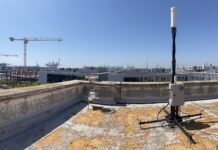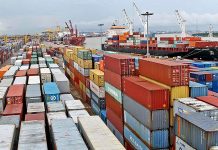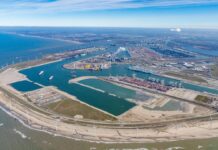
Westports Holdings, which runs nine container terminals in Malaysia’s Port Klang, said the effects of the Covid-19 pandemic will be seen from the second quarter of 2020, as the impact of the lock downs in a number of countries spreads.
The company’s managing director, Ruben Emir Gnanalingam, commented in the release of Westports’ Q1 results, which showed only a slight decline in throughput to 2.52 million TEU, from 2.53 million TEU in Q1 2019. However, transhipment volumes fell 8%, to 1.58 million TEU.
Westports achieved net profits of MYR153 million (US$35.33 million), up from MYR140 million (US$34.31 million) in Q1 2019.
Gnanalingam believes that the lockdown of economies in South East Asia, India to the EU and North America, in Q2 2020 has “severely curtailed economic activities” including consumption, investments and production related activities. The decline in capital expenditure on this scale will have a global impact on ports, he said.
“While we are hopeful for some recovery in the second half of the year, the company does not expect container throughput to register an overall increase for the year 2020. The severity of the volume contraction would depend on how protracted the Covid-19 pandemic is going to be and how social and economic activities adjust to a post-lockdown world. The world is unlikely to be able to consume in the way it used to, and it might take a while for it to get to the consumption levels of 2019,” said Gnanalingam.
Westports is 46% owned by the Gnanalingam family, through their investment vehicle Pembinaan Redzai Sdn Bhd. And Hutchison Port Holdings, controlled by Hong Kong tycoon Li Ka-shing holds close to 24% in the company.
Despite the uncertainties amid the Covid-19 pandemic, Westports intends to continue developing nine additional terminals in anticipation of higher volumes. In February, the company purchased 146.4 hectares of land in Port Klang for MYR394 million (US$95 million).
International Container Terminal Services, Inc (ICTSI), headquartered in the Philippines and a major global terminal operator, declared that it remains “financially strong”, despite the coronavirus crisis.
“The effect of the virus was felt in the latter part of the first quarter, and our volumes compared to the previous year were largely flat,” stated Enrique K. Razon Jr., ICTSI chairman and president.
ICTSI, which operates on six continents, has reported unaudited consolidated financial results for the quarter ended 31 March 2020 posting revenue from port operations of US$375.8 million, a decrease of 2% over the US$383.8 million reported for the same period last year. At the same time, Earnings Before Interest, Taxes, Depreciation and Amortization (EBITDA) reached US$212.2 million, 5% lower compared to 2019.
“Regions are at different stages of the viral outbreak, which is reflected in our portfolio performance,” commented Razon Jr.
Asia presented lower volumes compared to the previous year while the EMEA (Europe, the Middle East and Africa) and the Americas segments both still delivered positive volume growth. The latter two regions, however, showed signs of weakness in March.
ICTSI handled consolidated volume of 2,508,986TEU for the quarter, 1% more than the 2,478,672TEU announced for the same period in 2019. The slight increase in volume was primarily due to the contribution of a new terminal in Rio de Janeiro in Brazil and new services at certain terminals; tapered by a decline in trade activities due to the impact of Covid-19 pandemic on global trade. Excluding the contribution of ICTSI Rio, the consolidated organic volume would have decreased by 1% in the first quarter of 2020.
At the same time, gross revenues from port operations decreased by 2% to US$375.8 million as trade activities declined due to the impact of COVID-19 pandemic and lockdown restrictions. Exluding the contribution of ICTSI Rio, consolidated organic gross revenues would have decreased by 5% in the specific period.
Martina Li
Asia Correspondent








